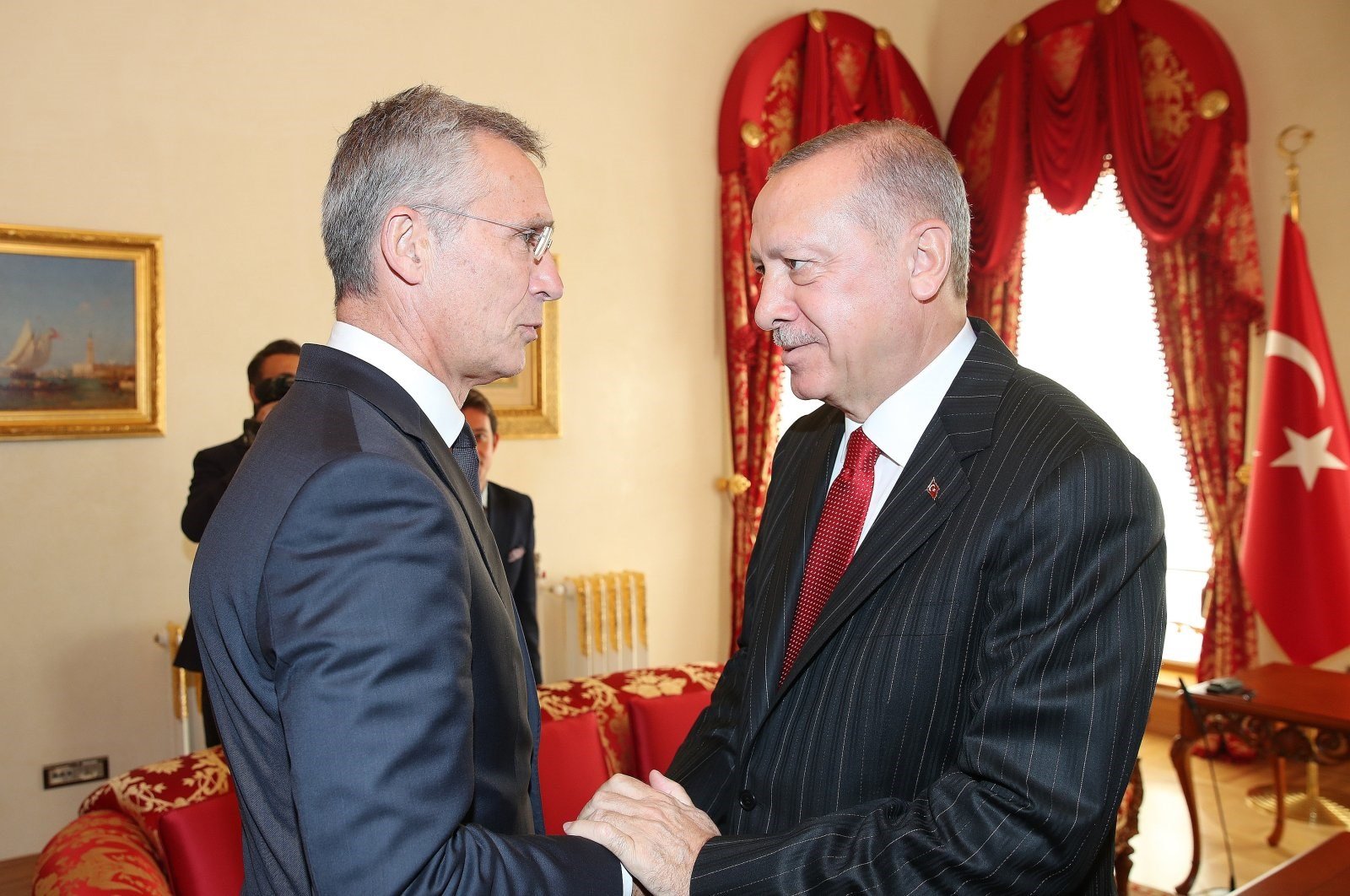Turkey cannot positively assess Finland, Sweden NATO accession plans
Turkey stresses that it cannot make an assessment of the situation between Sweden and Finland on the one hand and NATO on the other as the Nordic states try to join the alliance.
-

NATO Secretary-General Jens Stoltenberg and Turkish President Recep Tayyip Erdogan
Ankara is closely following the developments surrounding plans for the accession of Finland and Sweden to NATO, Turkish President Recep Tayyip Erdogan said Friday, stressing that he could not assess the situation positively yet.
"We are following the process. But we do not have a positive opinion on this matter, because, before that, there was a mistake in connection with Greece. You are aware of Greece's behavior in the alliance towards Turkey," President Erdogan underlined.
He also pointed to how Scandanavian countries "have a habit of showing 'hospitality' to terrorists, letting them into parliament," citing that as the reason why Turkey could not look positively at the prospect of Stockholm and Helsinki joining the alliance.
NATO Secretary-General Jens Stoltenberg said in March that the alliance would "fast-track" the membership applications of Finland and Sweden were they to make the decision of joining the alliance.
Both countries officially confirmed on Thursday their plans to join the alliance, with the US and Germany pledging to support the Nordic states if they choose to apply for membership.
Ahead of a critical month for Sweden and Finland, June - when the two countries are likely to submit a request to join NATO - the Swedish Social Democrats are divided over the country's possible application to join the NATO alliance, ending nearly 200 years of neutrality.
Finland, alongside its neighbor to the West, Sweden, is expected to request NATO membership in the coming months - before summer. Their accession, if it were to happen, would redefine European security and would be met with opposition from Russia, which has been very vocal about its opposition to NATO's expansion.
Though Moscow opposes the alliance's expansion, it does not see the accession of Finland and Sweden into the bloc as an existential threat, Kremlin Press Secretary Dmitry Peskov underlined. However, Russia will work on its Western flank to make it more sophisticated in terms of security in the face of NATO creeping in on its northern borders.
The Russian deputy representative to the United Nations, Dmitry Polyansky, said Thursday the two countries would potentially become targets for the Russian military and force Moscow to take action if they are admitted to NATO.
A joint Finland-Sweden application, to be submitted to NATO ahead of its Madrid summit on June 29, is supported by advocates of NATO membership. This would give NATO time to respond with an invitation to join.
Kremlin denies reports about gas supplies shut down in Finland
As relations grow tenser between Moscow and Helsinki over NATO, Kremlin spokesperson Dmitry Peskov assured that reports about the possible shutdown of Russian gas supplies to Finland as of Friday, stressing that they were nothing but "another media hoax".
Finnish newspaper Iltalehti reported Thursday, citing a lawmaker, that the country's key politicians had been warned about the possible suspension of Russian gas supplies on May 13 due to the dispute over Helsinki's NATO membership.
Finnish legislators Harry Harkimo "confirmed" the information saying that the suspension of gas supplies to Finland was previously expected on May 23, when Helsinki was to make the next payment to Russia for gas.
"Gazprom supplies natural gas to various consumers in Europe, including countries that are NATO members. And Gazprom has repeatedly demonstrated its reliability as a company that supplies energy resources to the European continent. Therefore, most likely, these reports are just another media hoax," Peskov told reporters.
The official noted that there were no such plans to suspend supplies, redirecting further questions to Gazprom.
Russian energy giant Gazprom had announced that it completely suspended gas supplies to Bulgaria's largest natural gas distribution company Bulgargaz and Polish oil and gas company PGNiG, as the companies failed to pay for gas in rubles amid tensions between Moscow and the West about only accepting payments for energy supplies in the national currency.

 4 Min Read
4 Min Read











